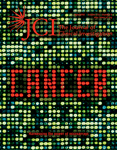Jun 3 2005
 The immunodeficiency that arises in HIV may be due to excessive programmed cell death of immune CD4 T cells.
The immunodeficiency that arises in HIV may be due to excessive programmed cell death of immune CD4 T cells.
HIV protease inhibitors (PI) can block programmed cell death in virus-infected T cells in vitro, but have also been shown to induce programmed cell death at higher concentrations. The mechanisms for these paradoxical data are unclear, as is whether PI therapy would aid CD4 T cell reconstitution in HIV patients in vivo.
In a study appearing online on June 2 in advance of the print publication of the July 1 print issue of the Journal of Clinical Investigation, Andrew Badley and colleagues from Mayo Clinic examine whether PIs can inhibit programmed cell death in vivo and the mechanisms involved. The authors show that HIV PIs block programmed cell death induced by three relevant, virus-independent mouse models – mice with experimental hepatitis, Staphylococcal-induced shock, and experimental stroke.
In each model, HIV PIs block programmed cell death and improve histology, survival, and function. The PIs prevent programmed cell death by maintaining mitochondrial integrity. These data show that PIs block programmed cell death in vivo and that related compounds may be useful for non-HIV disorders also characterized by excessive programmed cell death.